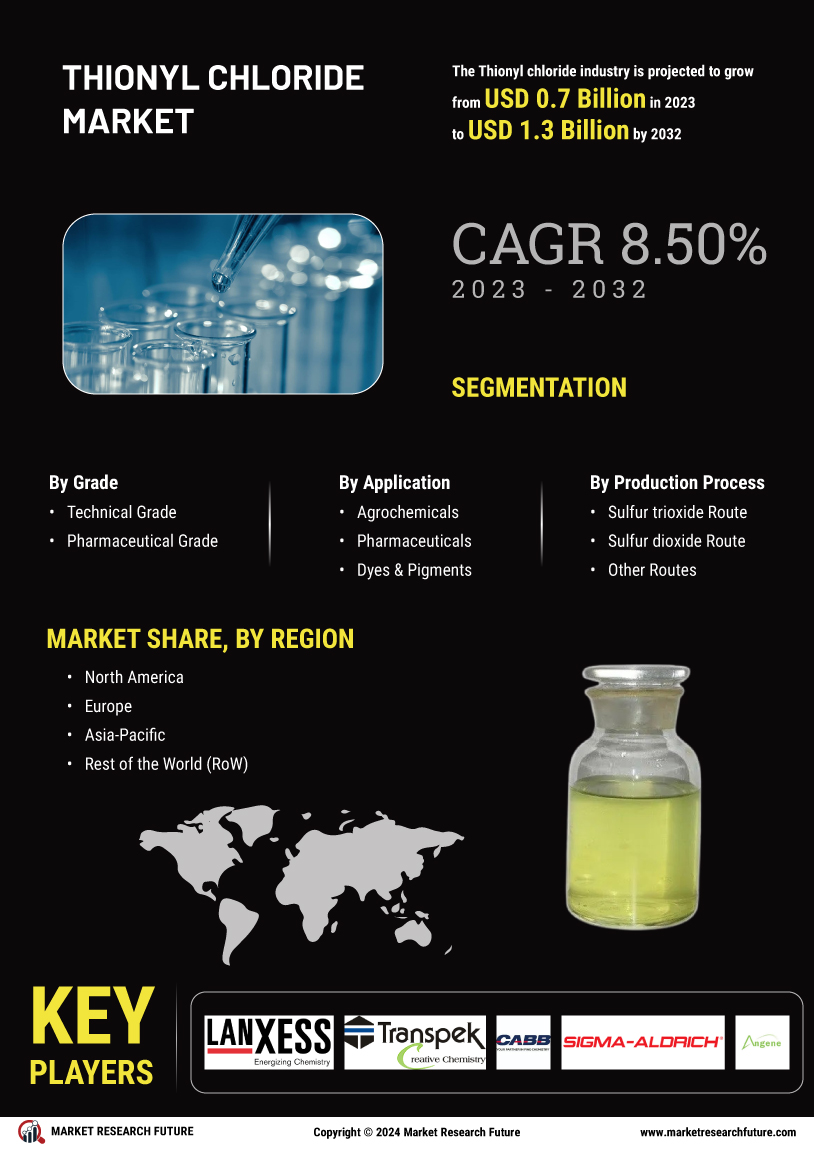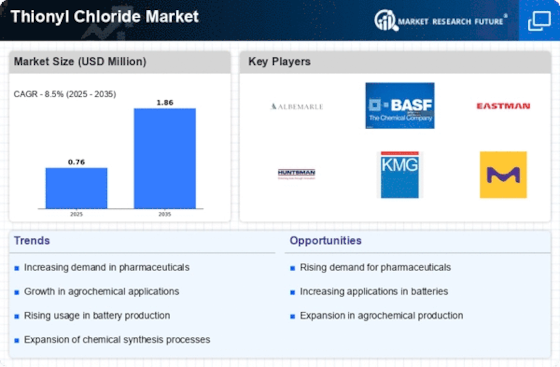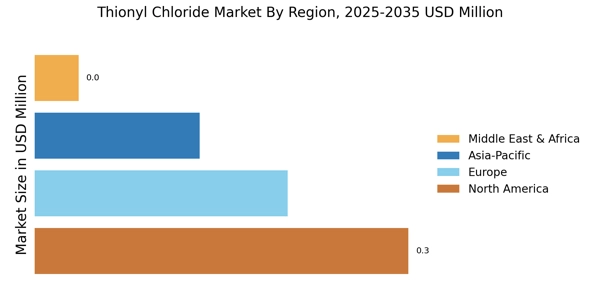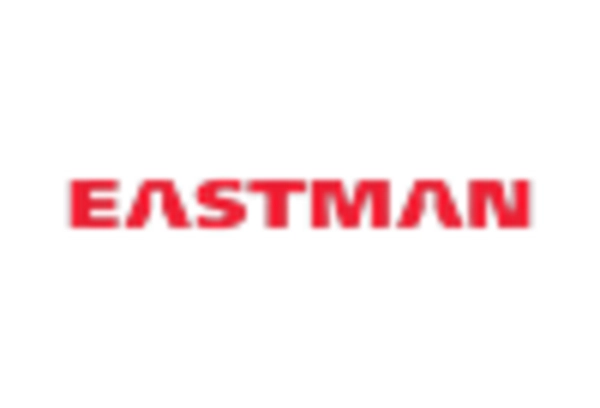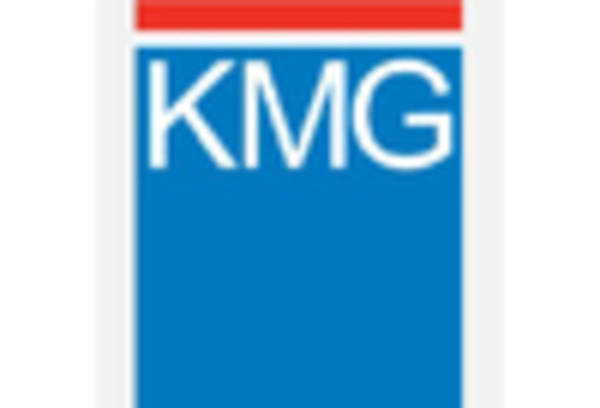Rising Demand in Battery Production
The Thionyl Chloride Market is witnessing a surge in demand driven by its application in battery production, particularly lithium-sulfur batteries. These batteries are gaining traction due to their high energy density and potential for use in electric vehicles and portable electronics. The Thionyl Chloride is expected to grow significantly, with projections indicating a CAGR of around 20% in the coming years. Thionyl chloride serves as an electrolyte in these batteries, enhancing their performance and longevity. As the push for sustainable energy solutions intensifies, the adoption of lithium-sulfur batteries is likely to increase, thereby propelling the demand for thionyl chloride. This trend suggests a promising future for the Thionyl Chloride Market as it aligns with the broader shift towards renewable energy technologies.
Increasing Use in Chemical Synthesis
The Thionyl Chloride Market is experiencing a notable increase in demand due to its essential role in chemical synthesis. This compound is widely utilized in the production of various chemicals, including phosphonates and sulfides, which are critical in agrochemicals and pharmaceuticals. The market for agrochemicals is projected to grow at a compound annual growth rate (CAGR) of approximately 5.5% over the next few years, indicating a robust demand for thionyl chloride as a key intermediate. Furthermore, the versatility of thionyl chloride in facilitating reactions, such as chlorination and sulfonation, enhances its appeal in the chemical manufacturing sector. As industries seek efficient and effective chemical processes, the reliance on thionyl chloride is likely to expand, thereby driving growth in the Thionyl Chloride Market.
Expansion in the Pharmaceutical Sector
The Thionyl Chloride Market is significantly influenced by the expansion of the pharmaceutical sector, where thionyl chloride is utilized in the synthesis of various active pharmaceutical ingredients (APIs). The pharmaceutical industry is projected to grow at a CAGR of approximately 7% over the next several years, driven by increasing healthcare needs and advancements in drug development. Thionyl chloride's role in producing intermediates for APIs makes it a critical component in pharmaceutical manufacturing processes. As the demand for innovative and effective medications rises, the reliance on thionyl chloride is expected to increase, thereby fostering growth in the Thionyl Chloride Market. This trend underscores the importance of thionyl chloride in supporting the evolving landscape of pharmaceutical production.
Growing Applications in Specialty Chemicals
The Thionyl Chloride Market is experiencing growth due to its expanding applications in specialty chemicals. Thionyl chloride is utilized in the production of various specialty chemicals, including dyes, pigments, and surfactants, which are essential in numerous industries such as textiles, coatings, and personal care. The specialty chemicals market is anticipated to grow at a CAGR of around 6% in the upcoming years, driven by increasing consumer demand for high-performance products. As manufacturers seek to enhance product quality and performance, the demand for thionyl chloride in specialty chemical applications is likely to rise. This trend indicates a positive outlook for the Thionyl Chloride Market, as it adapts to the evolving needs of diverse sectors.
Technological Advancements in Production Processes
The Thionyl Chloride Market is benefiting from technological advancements in production processes, which enhance efficiency and reduce costs. Innovations in chemical manufacturing techniques, such as continuous flow chemistry and green chemistry practices, are being adopted to optimize the production of thionyl chloride. These advancements not only improve yield but also minimize environmental impact, aligning with sustainability goals. As industries increasingly prioritize eco-friendly practices, the adoption of advanced production technologies is likely to drive growth in the Thionyl Chloride Market. Furthermore, these innovations may lead to the development of new applications for thionyl chloride, expanding its market potential and reinforcing its position in the chemical industry.
